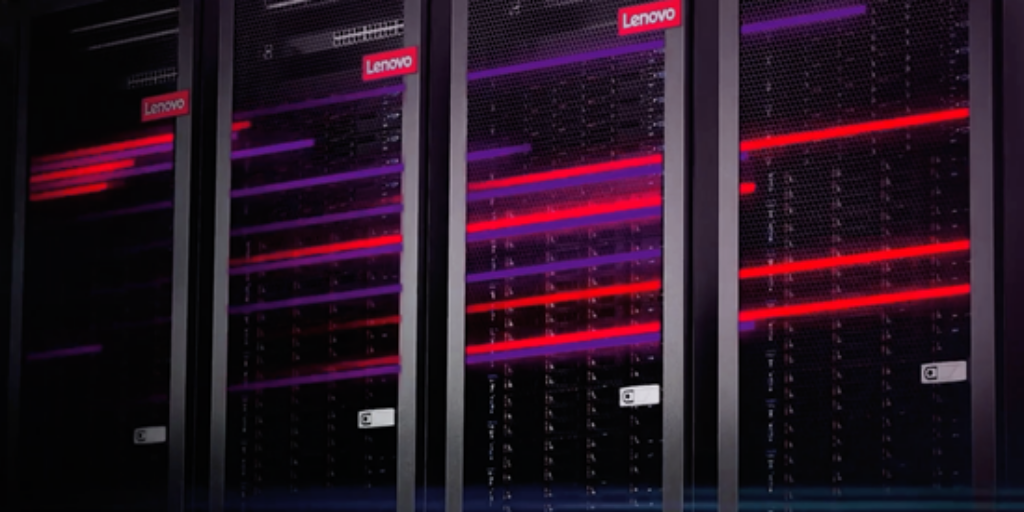 ST PAUL, Minn., November 29, 2022 — HPC industry analyst firm Hyperion Research today announced the recipients of the 17th round of HPC Innovation Excellence Awards.
ST PAUL, Minn., November 29, 2022 — HPC industry analyst firm Hyperion Research today announced the recipients of the 17th round of HPC Innovation Excellence Awards.
The winners are:
— For HPC-driven design of innovative functional materials for catalysis, energy conversion, and storage: Institute for Chemical Reaction Design and Discovery (WPI-ICReDD), Hokkaido University (contact: Andrey Lyalin, Associate Professor) WPI-ICReDD is the Institute for Chemical Reaction Design and Discovery. It is a WPI research center where researchers from different disciplines combine their strengths to take full control over chemical reactions.
The team at ICReDD successfully predicted a variety of unique materials for catalysis, energy conversion, and storage applications which were then experimentally confirmed. They also developed novel computational methods in quantum chemistry, materials informatics, and machine learning that can be used to discover further materials for energy and environmental applications.
— For fast-track computationally-driven discovery of new SARS-CoV-2 Main Protease (Mpro) inhibitors: from HPC to experimental drug candidates: Sorbonne Université and Qubit Pharmaceuticals (contact: Jean-Philip Piquemal, Distinguished Professor of Theoretical Chemistry and Director of the Laboratoire de Chimie Théorique (LCT) at Sorbonne Université, Paris)
This submission was based on synthesizing 2 new families of compounds in less than 3 months that were experimentally validated. A high-resolution molecular dynamics simulation of the SARS-CoV2 Main protease protein was then produced, the interaction with water was modeled and that unraveled potential druggable sites and identified potential drug candidates, and was used to predict absolute free energies of binding with potential active molecules. This research opens routes for further drug discovery and design.
— For an automated agent-based simulation method for the prediction of intensive care unit (ICU) occupancy due to COVID-19: HLRS, High Performance Computing Center Stuttgart (contact: Ralf Schneider, High-Performance Computing Center Stuttgart (HLRS) & Sebastian Klüsener, Federal Institute for Population Research [BiB])
On a weekly basis, the team from HLRS and BiB processes 4-week forecasts of regional intensive care unit occupancy in Germany due to COVID-19. The forecasts are produced at HLRS, making this the first time that a German national HPC center has delivered such a service. Moreover, the collaboration proved for the first time that HPC for global systems science can support decision makers in critical situations, making a difference for society. The forecasts are simulated by a model initially developed by BiB and improved by HLRS.
— For AI-based emulator of Computational Fluid Dynamic simulations for urban wind flow and gas dispersion: Bettair Cities SL (contact: Francisco Ramirez Javega, Chief Scientific Officer, Bettair Cities SL)
Air pollution is the single largest environmental health risk in Europe and a major cause of premature death and disease, but most urban air quality problems are hyper-local (e.g., land use, traffic). The Bettair team ran CFD simulations of wind flow and dispersion patterns on a large data set and trained a DNN to simulate the results at a fraction of the time and cost of previous approaches. This research empowers local communities, municipalities, and regional governments with accessible, actionable information about local emissions in real-time. The work has been funded within the FF4EuroHPC European project, Experiment 1012: Improving Bettair Air Quality Maps. Part of the project was performed by a team from the Barcelona Supercomputing center using ALYA.
— For LS-DYNA Scaling with the direct implicit solver: Rolls-Royce (contact: Todd Simons, High Performance Computing, Rolls-Royce)
Rolls-Royce collaborated with the LS-DYNA developers, researchers at NCSA, and Cray Inc. and with the support of computing resources at the Oak Ridge Leadership Computing Facility and the NCSA Blue Waters machine to improve the parallel scalability of the direct solver in LS-DYNA. Rolls-Royce developed a 200 million degree of freedom grand challenge thermo-mechanical model of a gas-turbine engine. This collaborative effort achieved parallel scaling out to 16,384 cores. The initial work involved changes to reduce memory requirements and the development of a parallel decomposition method that allowed the problem to be solved on supercomputers with limited memory per node. The work then focused on performance optimization of the solver kernels. Progress was made on a novel, scalable nested dissection algorithm to improve the fill-in ratio of the matrix. Strong scaling studies help improve the performance bringing the solution time down two orders of magnitude. The researchers included Todd Simons, James Ong, Robert Lucas, François-Henry Rouet, Roger Grimes, Erman Gulyeruz, Seid Koric, Ting-Ting Zhu and Jef Dawson, and with support from Ning Meng at Intel.
Since 2011, these semi-annual innovation excellence awards have been recognized globally as the touchstone for outstanding achievements that were supported by the use of high performance computing (HPC).
Winners have ranged from government and academic research teams to some of the world’s largest corporations. The program’s goals are to showcase HPC-supported, real-world achievements with significant potential for benefiting humanity—achievements that demonstrate the value of HPC for research and development in government, academic or private-sector organizations.
Only a few of the many nominations receive these awards. Judges for the awards, chartered with carefully reviewing each submitted nomination, are the members of the worldwide steering committee of the HPC User Forum, representing leading HPC user organizations in government, academia and industry. Award winners receive a $1,000 honorarium and an award certificate and physical trophy recognizing their achievements.
Hyperion Research welcomes award entries from around the world. Entries may be submitted at any time by completing the application form available at https://www.hpcuserforum.com/innovationaward/. New winners will be announced twice a year. Submissions must contain a clear description of the impact of the project. The HPC User Forum Steering Committee performs an initial ranking of submissions, after which domain and vertical experts are called on, as needed, to evaluate the submissions.
HPC Innovation Excellence Award sponsors include Adaptive Computing, Altair, AMD, Ansys, Department of Defense, Department of Energy, Ford Motor Company, HPCwire, HPE, IBM, insideHPC, Intel, Lenovo, National Science Foundation, NASA, and NVIDIA.




